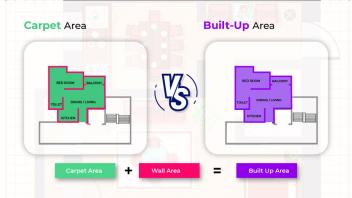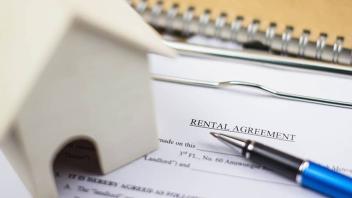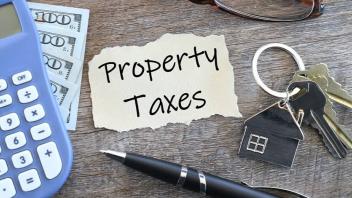Rent Rules and Regulations: Guide for Property Owners and Tenants

Renting a property, whether a house or an apartment, is a common occurrence in today's world. Whether you're a tenant or a property owner, understanding the landscape of rental laws is crucial for a smooth tenancy period. This guide aims to shed light on the key aspects of these rules and regulations for tenants and property owners to ensure both parties are informed and protected.
Deciphering the Rental Laws in India
Rental laws in India constitute an extensive framework designed to safeguard the rights and interests of both property owners and tenants. The backbone of these laws comprises rent agreement rules, rental house rules and regulations, security deposit or rent deposit rules, maintenance responsibilities, and eviction processes.
Key legislative acts such as the Rent Control Acts, the Transfer of Property Act, and the Indian Contract Act govern these laws. It’s important to comprehend these laws as they pertain to your particular region.
Key Rights and Responsibilities for Property Owners
A. Property Ownership
As a property owner, you possess rights such as setting rental prices, choosing tenants, and managing your properties. However, it is vital to maintain habitable living conditions, addressing repairs promptly, and ensuring the safety of your tenants.
B. Lease Agreements
A lease agreement is a legally binding contract that outlines the terms and conditions of the rental. It is crucial to draft clear and enforceable lease terms, including rent amount, lease duration, rules and restrictions, and procedures for lease termination.
C. Security Deposits
Security deposits are a common practice to protect property owners from potential damages or unpaid rent. Understanding the rules and regulations regarding security deposits, including the maximum amount allowed, proper handling, and refund procedures, is essential.
Also read: Tips to Get Full Rental Deposit from Your Landlord
Key Rights and Responsibilities for Tenants
A. Tenant Rights
Tenants have fundamental rights that protect them during the rental period. These rights include the right to privacy, a habitable dwelling, protection against discrimination, and the right to assert their legal rights without fear of retaliation.
B. Rental Payments
Tenants are responsible for paying rent on time as stipulated in the lease agreement. It is important to understand the consequences of non-payment and any rules regarding rent increases, including the requirement for proper notice.
C. Maintenance and Repairs
Tenants have the right to request necessary repairs and maintenance to ensure a habitable living environment. Landlords are responsible for addressing these requests promptly and maintaining the property's overall condition.
Also read: Questions to Ask Your Landlord before Renting a Home
Rental Rules for Terminating Tenancy, Eviction, Rent Increment, and Security Deposits
A. Notice Requirements
When terminating a tenancy, specific notice requirements must be followed. This may include a notice to pay rent or quit, notice to cure or quit, or an unconditional quit notice. Understanding the timeframes and requirements for each type of notice is essential.
B. Grounds for Eviction
There are legitimate reasons for evicting a tenant, such as non-payment of rent, lease violations, or property damage. It is crucial for both property owners and tenants to understand the specific grounds for eviction and follow proper legal procedures.
In India, eviction of a tenant can only be carried out through legal channels as prescribed by the Rent Control Acts. Valid reasons for eviction may include:
- Non-payment of rent
- Violation of lease terms
- Misuse of the property
It is important for both property owners and tenants to follow the proper legal procedures and provide adequate notice as per the applicable laws.
C. Rent Increment Rules
Property owners in India have the right to increase rent under certain circumstances. However, there are specific guidelines and restrictions regarding rent increases that vary across states. It is crucial for property owners to adhere to these rules and provide proper notice to tenants before implementing a rent increase.
Also read: Influential Factors on Rental Prices: A Comprehensive Analysis
D. Security Deposit Rules
Security deposits are commonly collected by property owners as a form of protection against potential damages or unpaid rent. In India, there are regulations governing the collection, handling, and refund of security deposits. Property owners must adhere to these rules and return the security deposit to the tenant within the stipulated time frame.
Legal Remedies and Dispute Resolution
A. Mediation and Arbitration
In cases of disputes or conflicts between property owners and tenants, alternative dispute resolution methods such as mediation or arbitration can offer a more efficient and cost-effective means of resolution, compared to traditional litigation.
B. Legal Actions
In some situations, legal action may be necessary. This can include filing a lawsuit for damages, seeking an injunction, or pursuing other legal remedies. It is important to know when and how to seek legal assistance when needed.
Understanding rental laws is paramount for property owners and tenants in India. By familiarizing themselves with rules for renting a house, rent agreement rules, eviction procedures, and other key aspects of rental laws, individuals can ensure a smooth and legally compliant rental experience.
Property owners need to be aware of their rights and responsibilities to effectively manage their properties and maintain habitable living conditions. Tenants, on the other hand, must understand their rights and fulfill their responsibilities to foster a positive tenant-landlord relationship. Stay updated with the latest rental laws and seek legal guidance when necessary to protect your rights and interests in the rental market.











